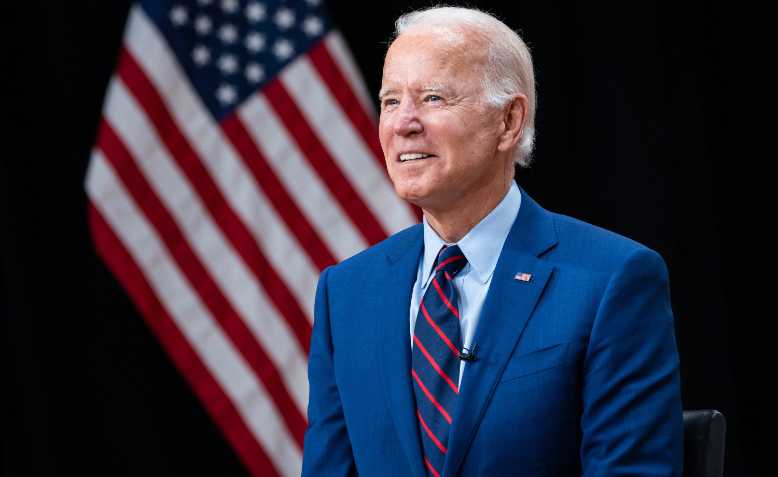 Joe Biden, 2020. Photo: the White House/cropped from original/licensed under CC BY 3.0 US, linked at bottom of article
Joe Biden, 2020. Photo: the White House/cropped from original/licensed under CC BY 3.0 US, linked at bottom of article
Given that regime change has been a cornerstone of US foreign policy for decades, Joe Biden’s words shouldn’t surprise us, argues Chris Nineham
US officials have been ‘rolling back’ from Biden’s weekend statement that Russian President Vladimir Putin ‘cannot be allowed to stay in power’. At a time when attention is once again turning towards negotiations to try to end the catastrophic war in Ukraine, Biden’s intervention was unhelpful to put it mildly. Secretary of State, Anthony Blinken, claimed ludicrously that what Biden meant was that the president Putin should not be ‘empowered to fight wars’. He went on to insist ‘we do not have a strategy of regime change in Russia – or anywhere else’.
This is laughable. Fostering regime change has long been a central plank of US foreign policy in many parts of the world. The leading neoconservatives who took over US foreign policy under George W Bush, including Donald Rumsfeld and Paul Wolfowitz, were fierce regime change champions. They were particularly focused on the downfall of Iraqi president, writing a letter to President Clinton in 1999 urging him to aim ‘at the removal of Saddam Hussein’s regime from power.’
Sure enough the 2003 invasion of Iraq ended up with the capture and hanging of Saddam Hussein by US forces. Two years before that the invasion of Afghanistan had regime change as its explicit aim. Despite recent embarrassed denials, ‘toppling the Taliban’ was one of the war’s central aims, and something the invaders temporarily pulled off.
The 2011 bombing of Libya led to the killing of President Ghaddafi. As if to illustrate that regime change has cross party approval in the US, on hearing of the US missile attacks that killed Ghaddafi, US democrat and secretary of state Hilary Clinton quipped ‘We Came. We saw. He died’.
Regime change has been a central part of the NATO playbook in Eastern Europe too. The US and its western allies played an important role in the unseating of pro-Russian Ukrainian president Victor Yanukovich in 2014. It is hard for US apologists to deny this as the famous leaked phone call between US Secretary of State for the region Victoria Nuland and her ambassador in Ukraine caught them discussing who should be in and who should be out of the new government.
The western powers had been focussed on securing a pro-western government in Ukraine for years. The 2008 Bucharest NATO summit dangled NATO membership in front of both Georgia and Ukraine, clearly stating that these countries ‘will become members of NATO.’
A campaign to buy Ukrainian hearts and minds has been running for decades. In 2013 Victoria Nuland publicly boasted of the fact that the US had invested $5 billion in ‘democracy promotion’ since 1991, a huge sum by USAID’s standards. The EU too spent $496 million on front groups in Ukraine between 2004 and 2013.
It was a secret free trade ‘Association Agreement’ between the west and the Ukrainian government that precipitated the 2013/2014 crisis. The meaning of the agreement was an open secret in Washington. It was not just about finally pulling Ukraine into the western orbit, it was also about destabilising Russia itself. In the words of Carl Gershman from the National Endowment for Democracy, while Ukraine was ‘the biggest prize’, there was, beyond that, an opportunity to put Putin ‘on the losing end not just in the near abroad but within Russia itself’.
However much the commentariat, the politicians and indeed the Labour front bench may deny it, the policy pursued by NATO in Eastern Europe over the last few decades has had the destabilisation of Russia as one of its main aims. A list of US foreign policy heavyweights from Henry Kissinger through James Baker to Madeline Albright and George Kennan have all made clear that the eastward expansion of NATO was bound to be provocative and threatening to the Russian regime. If you don’t believe them listen instead to the former US ambassador in Moscow and current head of the CIA, William J Burns:
‘In more than two and a half years of conversations with key Russian players, from knuckle-draggers in the dark recesses of the Kremlin to Putin’s sharpest liberal critics, I have yet to find anyone who views Ukraine in NATO as anything other than a direct challenge to Russian interests.’
There are differences within the US foreign policy establishment about just how far to push their luck, but there can be little doubt that many are seeing this terrible war as an opportunity to unseat one of their main enemies
Before you go
Counterfire is growing faster than ever before
We need to raise £20,000 as we are having to expand operations. We are moving to a bigger, better central office, upping our print run and distribution, buying a new printer, new computers and employing more staff.

